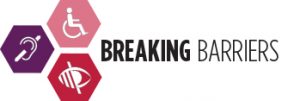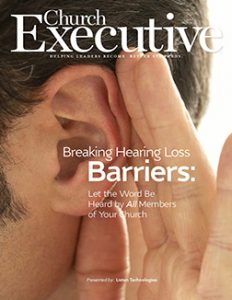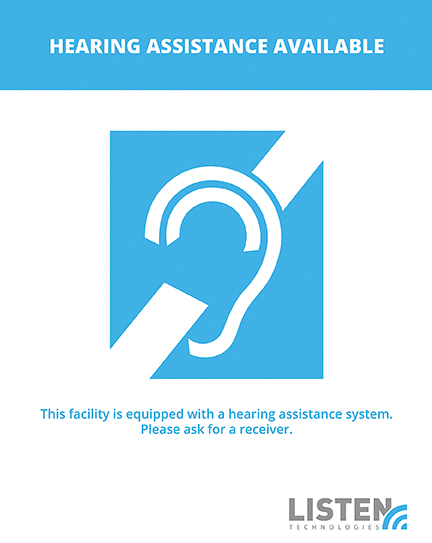By Maile Keone
 Like a beautiful painting or a touching melody, the spoken word has the power to move us in profound ways. It can give comfort in times of need or spark the imagination with new ideas.
Like a beautiful painting or a touching melody, the spoken word has the power to move us in profound ways. It can give comfort in times of need or spark the imagination with new ideas.
But, for too many — due to hearing loss — the spoken word is often beyond reach.
More so than ever before, we are fortunate now to have tools and technology that allow those affected by hearing impairment to participate fully in the activities they love, from taking classes, to attending performances, to joining together in worship. Assistive listening devices reopen doors that not long ago were closed.
Still, many organizations lack systems and equipment that could open their doors to countless scores of underserved individuals.
Assistive listening systems are a key component in the effort to provide everyone with equal opportunities to commune and worship, regardless of their respective hearing abilities. Connecting each person with the inspirational messages they seek is a critical mission for every church and house of worship.
Connecting everyone

The Centers for Disease Control estimate that nearly 15 percent of adults experience some degree of hearing impairment. That percentage equates to more than 37 million Americans 18 and older who have some difficulty with hearing fully or at all.
Hearing aids and cochlear implants are terrific for helping individuals with hearing impairments to participate fully in day-to-day activities, but often they are not sufficient for larger settings, such as worship services. By contrast, assistive listening devices do more than simply amplify sounds; they provide clean, filtered, focused audio directly to each listener, allowing them to fully experience sermons, verses and passages. This ensures that every congregant can partake in the services.
Fortunately, the difficult task of creating a culture that welcomes and provides for any worshipper is already done. Churches work each day to spread the message far and wide, and they welcome all to hear the stirring words of every service. Putting those aspirations into practice calls for a commitment to accessibility among both church leaders and parishioners.
Incorporating assistive listening into any house of worship, regardless of its size, demonstrates such a commitment and allows congregants of every age and ability to be welcomed fully into your church.

Sounds, simple
The latest assistive listening systems are as unobtrusive as they are effective. A microphone (which is likely already in use), a transmitter, and receivers for those individuals using the equipment are the basic elements of any setup. With these three features in place, your house of worship becomes more inclusive and more accessible to everyone.
The other critical part is communication — let your current and future congregants know that your church offers the accommodations they need, and expand your reach to welcome all who wish to call your church home.
Start here
Begin with the simplest task first: Ask your parishioners about their assistive listening needs and how they can be better served by your church. A simple survey can go a long way, and can be distributed in person or completed online — whichever is most convenient for your members. Regardless of the chosen method, the end goal is the same: understanding the specific needs of your congregation to help you choose the best-suited equipment and installation.
Whether formal or informal, the results of these might surprise you. There might be several members who would benefit from assistive listening of whom you were unaware. What will likely not come as a surprise, though, is the desire among all members to ensure a supportive, inclusive and inviting worship space for all.
Providing such a space is already one of the central tenets in any house of worship. Take time to consider what would be most beneficial to your churchgoers, and explore the many options available for sharing your message.
Assistive listening systems are certain to play an integral part in bringing the congregation together and sharing in the joy of each service.
Maile Keone is the Vice President of Sales and Marketing at Listen Technologies in Bluffdale, UT. She is an advocate for people with hearing loss and a spokesperson on mandatory assistive listening compliance worldwide.


